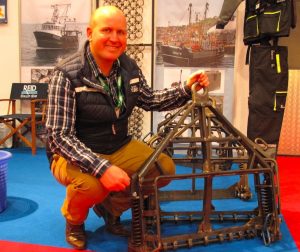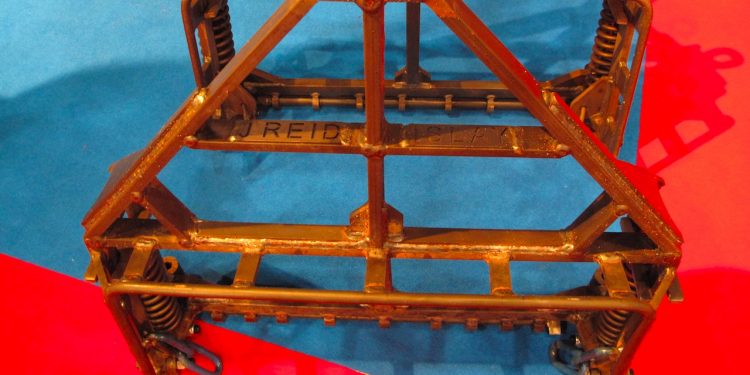A heavy-duty scallop dredge from J Reid Scallop Gear has been tested extensively off the west coast of Scotland before being made available.
‘It’s made from Hardox 600 steel, and is beefed up for rough ground,’ Jonathan Reid said.
‘It’s the same design as the standard dredge, a bit heavier as we made it more robust to last longer on hard ground, and to suit their needs. We wanted to come up with gear they want, rather than what they’re given.’
The heavy-duty dredge was given a five-month trial on a number of scallopers fishing off the Scottish west coast, with the skippers also providing input to the design.
‘We worked with the skippers on getting this right, with a lot of time looking at pictures of old dredges to see where the breaks are. All of the skippers who tried the dredges out came back with repeat orders, so we have to be doing something right if they come back for more.’

He explained that the Hardox steel is five times harder than standard mild steel, which extends the working lives of the dredges significantly.
‘The cost of these is about 10% more than standard dredges. With Hardox steel we don’t need the heat treatment we use with mild steel so we can use it as it is, and as we’re buying this in large quantities, so that also helps keep the price down.’
Since relocating to Brixham some years ago, J Reid Scallop Gear has continued to grow, and the scallop dredges are in demand all over the UK, plus a chandlery and hydraulic repair services have been added to the business.
‘We turned part of the store into a hydraulic workshop, as a one-stop shop for hydraulic components, and as long as long as the customer knows exactly what they want, we can ship it to them in 24 hours,’ he said.
‘What is a problem with hydraulics is that people normally need a part when something has gone wrong, so we also check systems to identify where problems are likely to be, and we have already done quite a few of these in Brixham. We’ll mark up what needs to be replaced now, or what looks to be needing attention before too long, so they can carry a spare on board, or fix it right away before it becomes a problem.’









